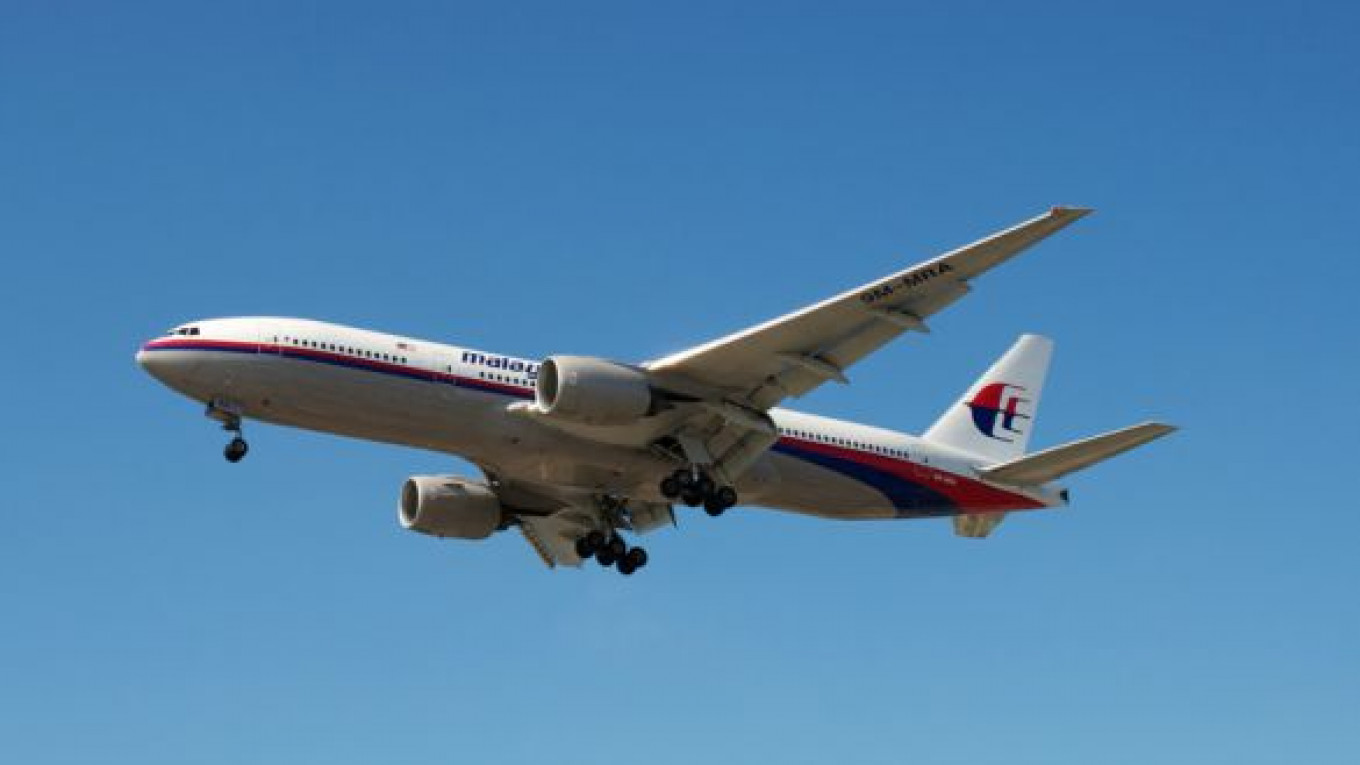A? Russian traveling from? Bali to? Irkutsk was on? board? the passenger jet lost over the? South China Sea, the? Russian Embassy in? Malaysia has said.
Malaysia Airlines also said two Ukrainian nationals were on? board its Boeing 777-200, which disappeared from? the radars? early Saturday.
Air and sea rescue teams have spent more than 30 hours searching an area of the South China Sea south of Vietnam for the plane, while crews have also expanded their search to include the west coast of Malaysia.
Forty ships and 34 aircraft from nine different nationalities are involved in the search, but no signal has been received from the plane's emergency locator transmitter, Malaysian aviation authorities said Sunday, the BBC reported.
Vietnamese navy ships earlier approached two large oil slicks, spotted in the South China Sea on Saturday, but discovered no signs of wreckage nearby.
Malaysian air force head Rodzali Daud said the investigation was focusing on a recording of radar signals that showed there was a chance the aircraft had turned back from its flight path.
Investigators are also checking CCTV footage of two passengers, who are believed to have boarded the plane using stolen European passports. No group has claimed responsibility for the plane's disappearance, though Malaysia's transportation minister, Hishammuddin Hussein, has not ruled out terrorism as a factor in events.
"Our own intelligence have been activated and, of course, the counterterrorism units … from all the relevant countries have been informed," Hussein said.
The missing jet was carrying 227 passengers from? 14 countries, mainly China and? Malaysia, and? a crew of? 12, all Malaysian nationals, the? carrier said in? a statement.
The? plane was heading from? Malaysian capital Kuala-Lumpur to? Beijing.?
Material from The Moscow Times was included in this report.
A Message from The Moscow Times:
Dear readers,
We are facing unprecedented challenges. Russia's Prosecutor General's Office has designated The Moscow Times as an "undesirable" organization, criminalizing our work and putting our staff at risk of prosecution. This follows our earlier unjust labeling as a "foreign agent."
These actions are direct attempts to silence independent journalism in Russia. The authorities claim our work "discredits the decisions of the Russian leadership." We see things differently: we strive to provide accurate, unbiased reporting on Russia.
We, the journalists of The Moscow Times, refuse to be silenced. But to continue our work, we need your help.
Your support, no matter how small, makes a world of difference. If you can, please support us monthly starting from just $2. It's quick to set up, and every contribution makes a significant impact.
By supporting The Moscow Times, you're defending open, independent journalism in the face of repression. Thank you for standing with us.
Remind me later.


